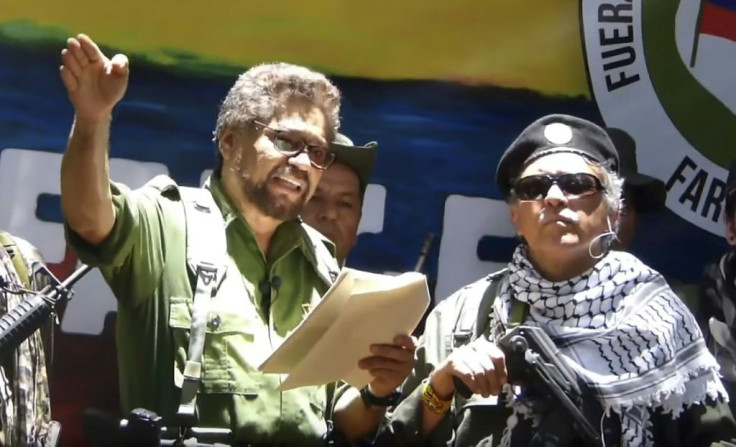Colombia's FARC Party Expels Rebel Faction

The FARC political party in Colombia -- created out of a peace agreement between the former guerilla group and the government -- said on Wednesday they have expelled a band of dissidents who announced their return to arms.
"The re-armament announcement disregards our national leadership" and "all political guidelines and disciplinary principles," the party, which uses the same acronym as its armed predecessor, said in a statement.
The faction's violation of "the statute and code of ethics in every way, which has allowed for small, large and very large failings," justifies their expulsion from the party.
There is "no room for armed expression" in the FARC party, the statement said.
The decision was aimed at Ivan Marquez, a former senior commander of the dissolved FARC rebel forces, along with other ex-leaders including Jesus Santrich and Hernan Dario Saldarriaga.
The rebel faction announced it would start fighting again in August, posting a video on YouTube in which they appeared dressed in military attire alongside 17 other dissenters.
They presented themselves as fighters for the dissolved FARC armed group, claiming the state had betrayed the 2016 agreement between the rebels and former president Juan Manuel Santos's government.
All this, Marquez said in the video, "forced us to return to the field."
"We were never defeated ideologically. Therefore, the fight continues," he said.
Earlier this month, the peace court that handles the conflict's worst crimes excluded the dissidents from the benefits outlined in the agreement so that they can be tried in the regular justice system, should they be arrested.
Colombian President Ivan Duque's government claims Marquez and his associates are hiding in Venezuela, where leaders of Colombia's last active guerrilla group, the National Liberation Army (ELN), are also seeking refuge, according to official accounts.
Negotiated with United Nations support, the 2016 peace accord ended the insurrection by the Revolutionary Armed Forces of Colombia and turned it into a political party called the Common Alternative Revolutionary Force.
While some 13,000 guerillas were demobilized, around 2,300 combatants remain, and are involved in drug trafficking and illegal mining, according to military intelligence.
That figure includes rebels who rejected the agreement, plus new recruits. The number of combatants under Marquez's command is unknown.
© Copyright AFP 2024. All rights reserved.




















